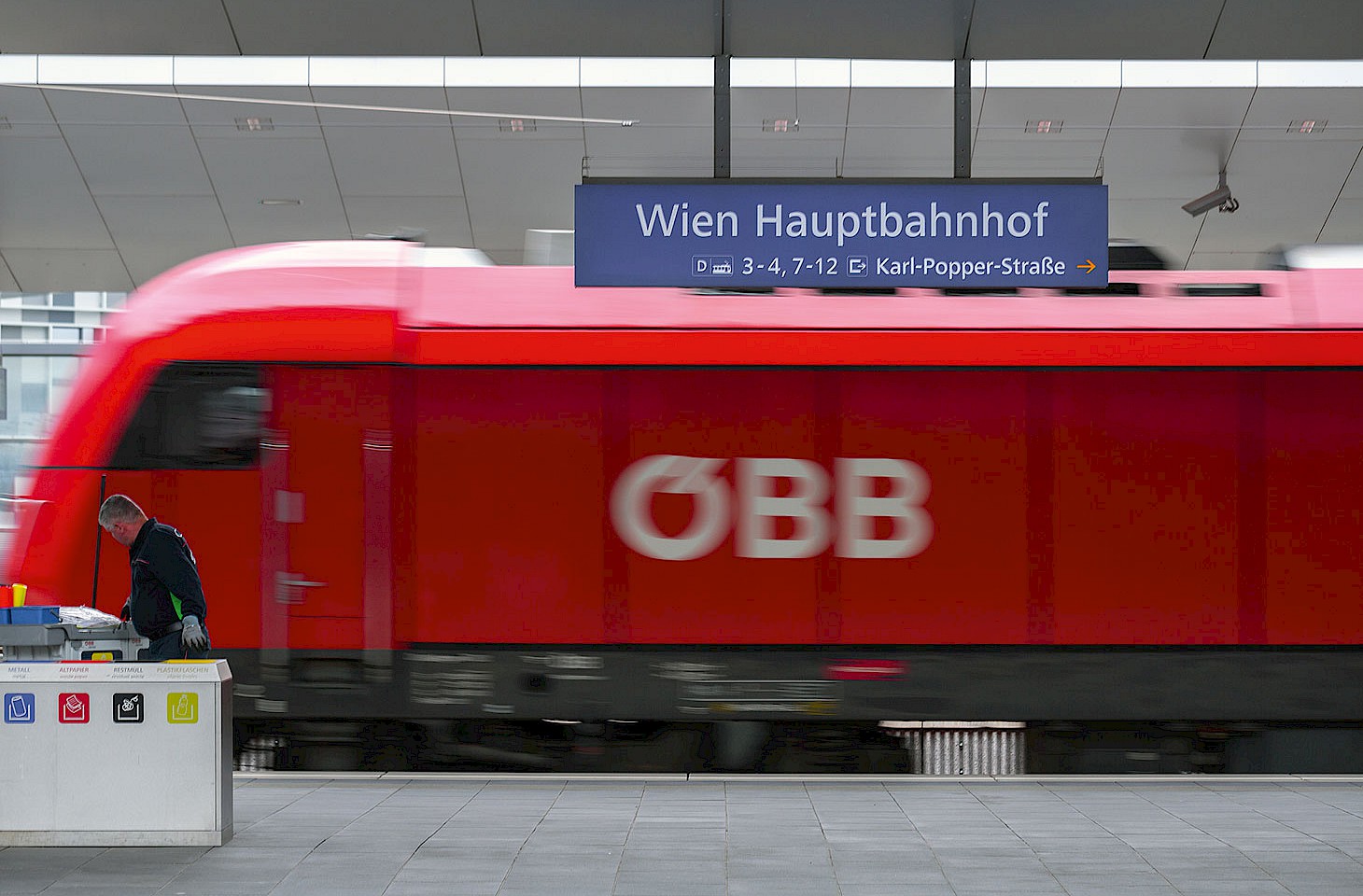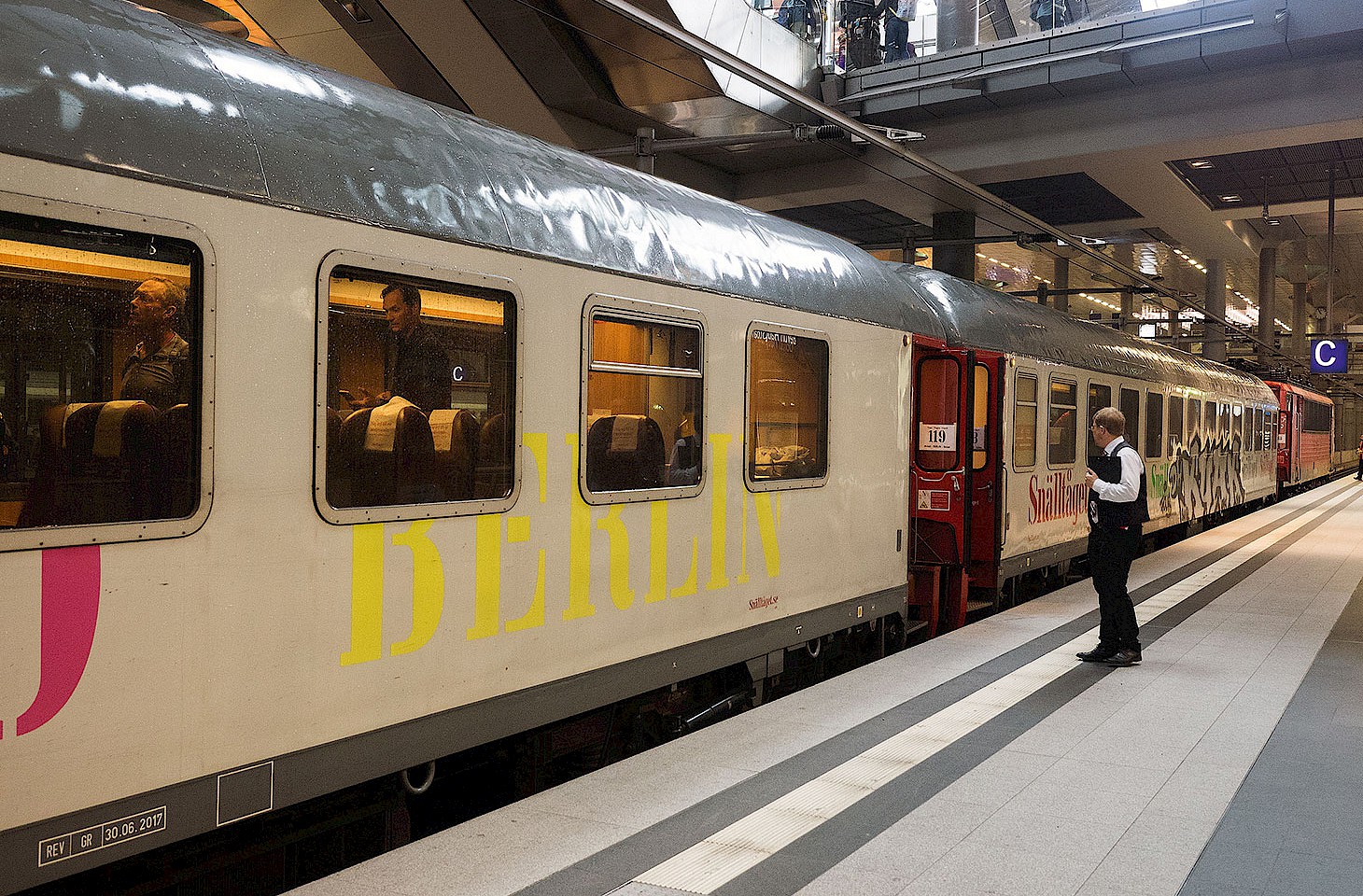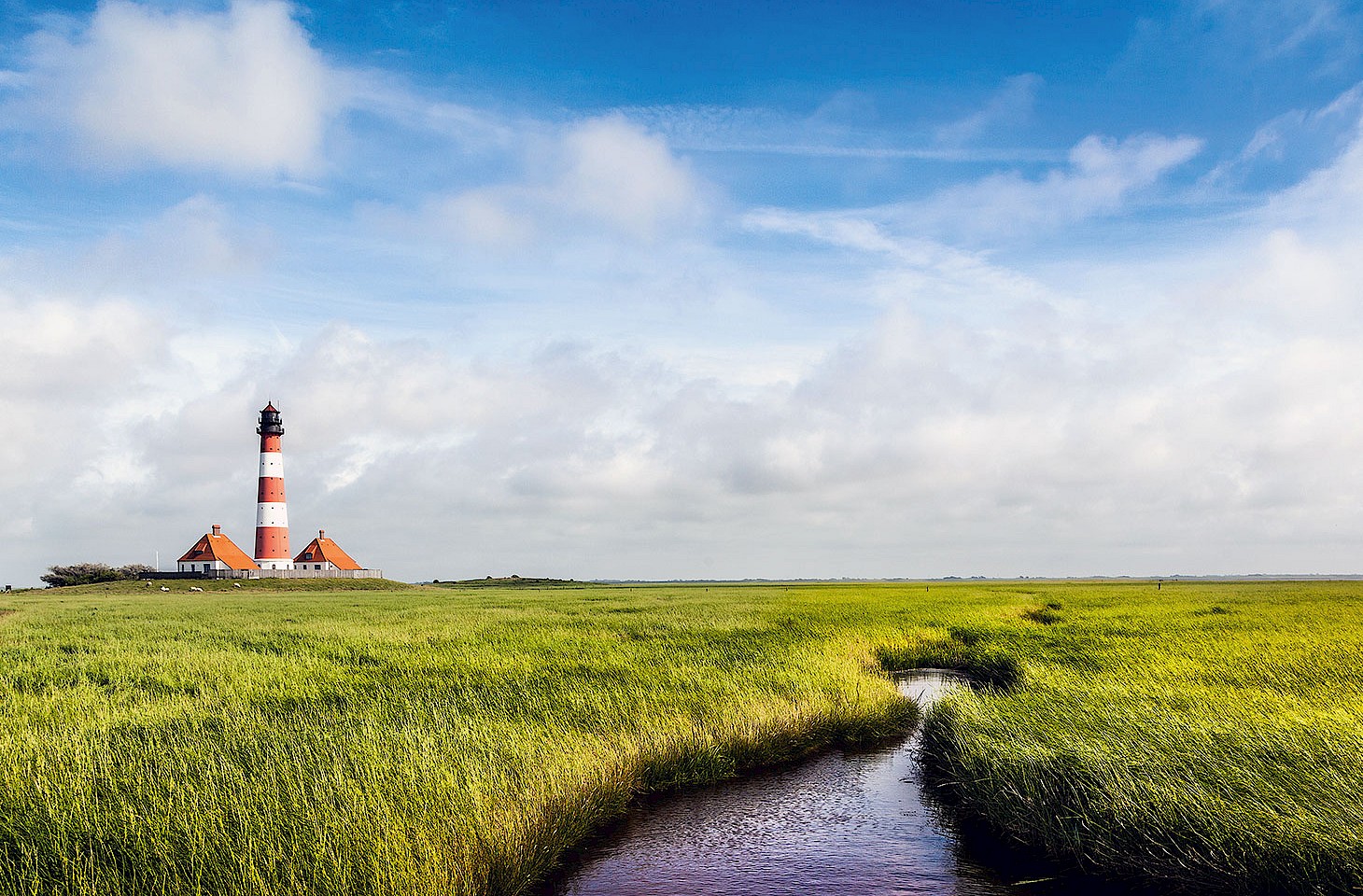Dear fellow travellers
You have surely never heard of Buchenhorst. Nor had we until yesterday. It is a tiny community deep in the forests of western Pomerania. Four or five houses, probably the homes of forestry workers, and not a lot more. We do not know quite what impelled early railway pioneers to build a small railway station at Buchenhorst.
In these winter days, Buchenhorst is the sort of place that scarcely wakes up. The entire region lies deep in snow, and the absence of well trodden paths suggests that Buchenhorst is self-sufficient in its wintry isolation.
That all changed yesterday, when the Inter-City train stopped at Buchenhorst - perhaps the first time in the history of this diminutive wayside halt that such a grand train has stopped at its desolate platform. We were travelling east along Germany's Baltic coast - a region known as Vorpommern, which historically has been contested by Slavic, Swedish and German interests.
Winter journeys through this rural region can be deeply impressive. This year, snow has lain for weeks on end. There are glimpses of remote farmsteads, troubled skies, frozen rivers and ice-clad harbours. We were just twenty minutes away from Stralsund, our almost empty train was well on time, and we were enjoying mid-morning coffee when suddenly, with a shudder and a jolt, we ground to a halt in lonely Buchenhorst. Evidently an unhappy encounter with blocks of ice on the tracks had damaged the snow fenders at the front of the train.
We lingered over coffee, preferring the warmth and comfort of the train to braving the falling snow outside. Then, after a while, came the news that we should disembark, and walk to the nearest road to await onward transport by coach. We were a group of about thirty in all, and many among our little brigade had rucksacks and suitcases. There was a blind man, a girl with a violin and a woman with two small children.
When did Buchenhorst last see such scenes? Quite possibly not since lines of refugees tramped through this region at the end of the Second World War. Walking in deep snow is not easy, and we felt like a real expeditionary force by the time we reached the road. Adversity breeds a happy camaraderie. We waited on a quiet country lane. A red car approached from the north, the vehicle's driver evidently a little bemused by the crowd standing on the road. She slowed, looked set to stop, but then at the last minute evidently took fright and, with a fierce honk of the car's horn, pressed on. Who knows what she imagined. Perhaps an invasion of aliens disguised as humans.
Snow was still falling heavily. Eventually a smart coach arrived. Generous smiles and we climbed aboard, escorted by the train crew. Ten minutes later and an unhappy encounter with a ditch presented our band of travellers with a new challenge. But we had already shown our mettle. The Buchenhorst brigade was not going to be defeated by a metre of snow. So we pushed the coach, and person power won. The coach was quickly back on the road again and soon we were driving slowly east on snowy roads towards Stralsund.
Nicky Gardner and Susanne Kries
(editors, hidden europe)




